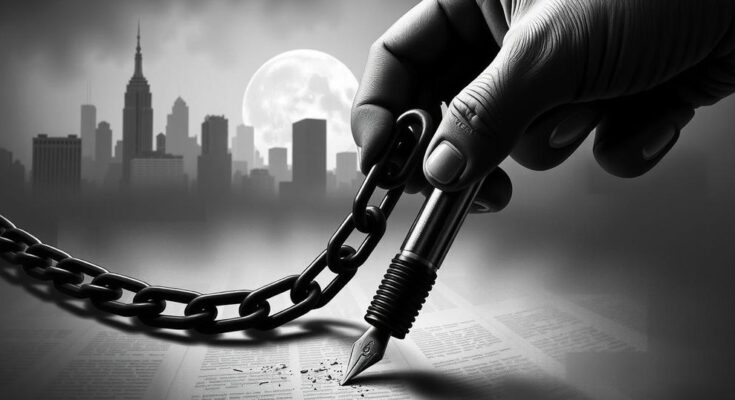In Beirut, Lebanese journalists and civil society groups are once again facing the threat of criminal defamation charges, as revealed by Human Rights Watch. This appears to be a tactic against those who expose corruption and financial mismanagement within the country. On April 10, authorities summoned members from Daraj, Megaphone, and a representative from Kulluna Irada for investigative hearings set for April 15, echoing previous summoning of Daraj journalists in March.
Adam Coogle, Human Rights Watch’s Deputy Middle East Director, remarked that the recent political shifts in Lebanon have not deterred authorities from cracking down on independent media. He lamented the misuse of defamation laws, suggesting they are weaponised against those attempting to reveal financial misconduct. He urged the Lebanese government and parliament to safeguard free expression openly.
Following lawsuits hinting at defamation due to investigations into the banking sector, the Anti-Cybercrime Bureau has summoned the Daraj editor-in-chief multiple times since March 2025. Documents show that these lawsuits were initiated by Antoun Sehnaoui, CEO of Société Générale de Banque au Liban (SGBL). Allegations of defamation surfaced after Daraj’s exposé on financial mispractices involving the bank and Sehnaoui himself.
Sehnaoui has pursued legal action against Daraj’s staff, including an initial lawsuit against editor Hazem al-Amin and journalist Jana Barakat for a 2023 report before filing a second lawsuit in March 2025 related to a follow-up video. Human Rights Watch reached out to Sehnaoui on April 4, yet no response has been given.
Moreover, a recent complaint lodged by three lawyers accuses Daraj and Megaphone of jeopardising the state’s financial integrity and inciting panic among depositors. This complaint led to a referral to the public prosecutor at the court of appeals on March 26. Simultaneously, Kulluna Irada also faced allegations, with complaints suggesting they are spreading misinformation that undermines the country’s financial stability, leading to the same judicial referral by March 25.
Human Rights Watch has previously recorded escalating defamation cases being used as intimidation against journalists. Although the judiciary may dismiss these claims, the threat promotes self-censorship among media professionals. In light of this, new media legislation should respect human rights by abolishing defamation laws and adopting civil penalties instead.
Historically, the Cybercrimes Bureau initiated thousands of defamation inquiries, with a staggering 325% increase over three years, reflecting a growing atmosphere of fear and despair amidst Lebanon’s economic decline. A coalition of Lebanese media outlets, civil society members, and politicians recently condemned these politically motivated investigations, demanding more freedom for journalists.
While Lebanon’s constitution upholds freedom of expression, the penal code imposes heavy penalties for defamation against public figures. Without significant reforms, Coogle warns that such laws remain tools for suppressing free speech, urging the government to enhance these protections in tandem with broader reforms.
Lebanon is experiencing a crackdown on independent media as journalists face criminal defamation charges for their investigations into corruption. Human Rights Watch highlights the misuse of legal provisions against media outlets like Daraj and Megaphone, urging the government to protect freedom of expression. Recent lawsuits led by banking figures reflect ongoing intimidation tactics against those revealing financial misconduct.
In conclusion, Lebanon’s media landscape is being increasingly stifled by criminal defamation laws used against journalists and civil society, highlighting a troubling trend of suppression under the guise of legal charge. Human Rights Watch calls for the repeal of these restrictive laws and urges the Lebanese government to reaffirm its commitment to protecting free expression. Efforts to improve media legislation must align with international human rights standards to cultivate a safer environment for journalists and dissenting voices.
Original Source: www.hrw.org



